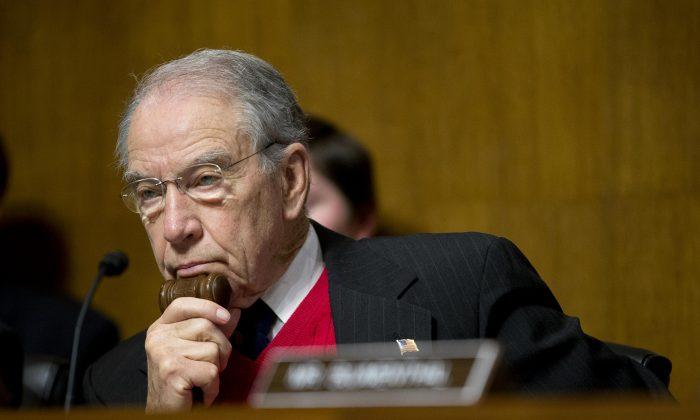A Senate hearing on the FDA’s oversight of foreign drug manufacturing has heard from Sen. Chuck Grassley (R-Iowa that the CCP virus pandemic has highlighted the U.S. need for a “robust and aggressive” inspection program for drugs manufactured abroad.
Grassley, Chair of the Finance Committee, said on June 2 that the United States imports 13 percent of its active pharmaceutical ingredients (API) from China and 19 percent from India, while more than 70 percent of the facilities that make APIs are located abroad.
“These figures coupled with the COVID pandemic have got a lot of attention, including what might need to be done from a national security standpoint,” said Grassley, adding that over 50 percent of the manufacturing units where APIs are converted into final drugs are also located abroad.
“But, the figures do make clear what needs to be done from a drug safety perspective—we need to have a robust and aggressive foreign inspections program,” said Grassley.
Drugs produced in China and India have had a serious quality control problem, Grassley said, pointing to the recall of the drug “valsartan” that was found to contain contaminants used in rocket-fuel.
“Facilities in China and India produce that drug,” he said.
Unannounced Foreign Inspections
Senators have criticized the FDA’s foreign inspections for being less stringent than the domestic inspections because of a practice that involves prior notice of the inspection to the manufacturers.The Senators asked the FDA to “level the playing field” by doing more unannounced inspections at foreign manufacturing units to prevent deception during inspections at these facilities.
FDA Associate Commissioner for Regulatory Affairs, Judith McMeekin, acknowledged that most of the foreign inspections are pre-announced but that this was important for various reasons.
It helps to verify that the foreign manufacturing unit falls within the FDA’s jurisdiction and that personnel and records are maintained, she said.
McMeekin added that the FDA’s statutory inspectional authority, 21 USC 374, is not applicable at foreign facilities and that pre-announcement helps the FDA’s inspection team gain permission for inspection.
Inspections Suspended During Pandemic
The FDA has indefinitely suspended its routine foreign inspections during the pandemic. However, the agency has also taken measures to ensure the safety and quality of foreign manufactured drugs during this time.Officials told the Senate hearing that measures include increasing physical checks at the U.S. border, checking foreign manufacturer’s compliance history, denying entry to drugs that don’t meet standards, working with foreign governments for mutual quality control, and requesting documents from the manufacturers “in advance of or in lieu of” on-site drug inspections.






Friends Read Free